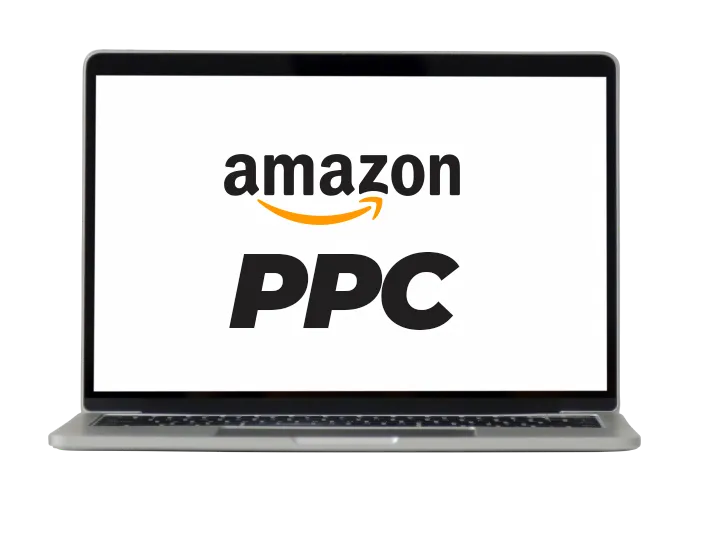You can have a great product, multiple reviews, and still struggle to get noticed on Amazon. That’s because visibility is everything on the platform, and without it, even the best products won’t rank high. PPC campaigns allow you to pay for placements so your products show up when shoppers are most likely to buy. But anyone can turn on ads. The real difference comes from how well you manage them.
This guide will walk you through everything you need to know about Amazon PPC management.
What is Amazon PPC?
Amazon PPC is Amazon’s advertising platform that works on a pay-per-click model. You only pay when someone clicks your ad. It’s a way to increase product visibility, drive traffic, and improve sales. Ads appear on search results pages, product detail pages, and even off-Amazon placements in some cases.
There are three main types of Amazon PPC ads:
- Sponsored Products – These are the most common. They promote a single product and show up within search results and on product detail pages. For many sellers, this is where they start.
- Sponsored Brands – These ads highlight your brand and multiple products together. They usually show at the very top of search results with your logo and a custom headline.
- Sponsored Display – These ads let you retarget shoppers on Amazon and even outside Amazon.
Do You Need to Use PPC to Be Successful?
No, but in most cases, it’s almost impossible to succeed without it. Organic rankings take time, and competition is fierce. Over 70% of clicks go to the first page, and ads take up many of those spots.
PPC gives you immediate visibility, helps you get sales faster, and boosts your organic rank. If you skip it, you’ll need to rely only on slow organic growth while your competitors pay to take the top spots.
What is Amazon PPC Management?
PPC management is the ongoing process of planning, running, analyzing, and adjusting your Amazon ads. It involves:
- Keyword research and selection
- Management of Sponsored Brands Ads, Sponsored Product Ads, Sponsored Display Ads, or Amazon DSP
- Campaign structure optimization and targeting
- PPC bid management and budget management
- Detailed campaign tracking and analysis
- Launching new products and creating ads
- Boosting traffic of underperforming products
- Regular performance reporting
How Often Should You Manage PPC Campaigns?
In the beginning, you should check campaigns daily to ensure things are running smoothly. Once campaigns stabilize, weekly optimizations are usually enough. Larger accounts may require daily monitoring in the long term.
What Options Do You Have for Amazon PPC Management?
You have two choices: you can either manage it yourself or hire an agency to do it for you. Both have their pros and cons.
Hiring an Amazon PPC Agency
An Amazon PPC agency is a company that handles your campaigns for you. Unlike general marketing firms that cover social media, Google Ads, or other platforms, these agencies specialize only in Amazon. That means their team knows the ins and outs of Amazon’s ad system, how bidding works, what types of ads perform best, and how to get the most from your budget.
Pros of Hiring an Agency
Saves You Time
Managing PPC is not something you can check once a month. It needs daily or weekly attention to keyword testing, bid adjustment, and performance tracking. If you’re already busy running your business, this can be overwhelming. An agency handles all of this for you.
Dedicated PPC Focus
As a business owner, PPC is just one of the many things on your plate. That often means it gets less attention than it should. Agencies focus only on PPC. This usually leads to better results.
More Experience and Better Tools
Agencies employ PPC specialists who may have managed thousands of campaigns across different categories. They know what strategies work in competitive niches, how to deal with rising ad costs, and how to recover from a poorly performing campaign. They also usually have access to advanced PPC tools that most small sellers can’t afford on their own. This can often lead to faster improvements and stronger ROI.
Cons of Hiring an Agency
Higher Costs
Agencies don’t come cheap. Many charge a monthly fee plus a percentage of your ad spend. For small businesses, this can be tough, especially if your ad budget is only a few thousand dollars.
No Guaranteed ROI
Even experts can’t guarantee success. You might spend a few months paying for management fees only to realize your sales didn’t grow as much as expected. If margins are already tight, this can be a big risk.
Less Control
When you hand over your campaigns to someone else, you’re essentially giving up some control. If the agency doesn’t fully understand your brand or your products, they might run campaigns in a way that doesn’t fit your vision. On top of that, most agencies require contracts, which makes it hard to leave if you’re not happy with the service.
Managing PPC Yourself
The other option is to manage your Amazon ads in-house. This could mean doing everything manually or using PPC software to automate parts of the process. A lot of smaller sellers start this way because it costs less. But it comes with its own challenges.
Pros of Managing PPC Yourself
Lower Costs
The most obvious benefit is saving money. You don’t have to pay agency fees, which can range anywhere from $400 to $2,000 per month. Even if you use PPC software, the costs are much lower. Most tools start at about $30 per month and scale up based on features.
Faster Decisions
When you run ads yourself, you can respond immediately to changes like raising bids during peak seasons or cutting back when inventory is low. You don’t need to wait for an agency to make adjustments.
You Know Your Business Best
Nobody knows your margins, goals, and product details better than you do. Managing ads yourself means you can make sure your strategy matches your business. You’re also more invested in the results because it’s your money on the line. That often pushes sellers to dig deeper into their campaigns and keep learning.
Cons of Managing PPC Yourself
Lack of Experience
Amazon ads can be complicated. There are different match types, targeting options, and bidding strategies to learn. Without experience, it’s easy to make mistakes that cost money.
Time Commitment
Running ads well means checking campaigns regularly. If you’re already stretched thin with operations, customer service, and logistics, PPC can easily get pushed aside. And when it does, results usually suffer.
Harder to Scales
As your business expands and you add more products, managing ads gets harder. More campaigns mean more data to track, more keywords to optimize, and bigger budgets to manage. Without extra resources, you may struggle to scale effectively.
Final Thoughts
Amazon PPC management is a key part of building a successful Amazon business. It helps your products get seen, increases sales, and improves your organic rankings. To get great results, you need to stay on top of keywords, bids, budgets, and performance data on a regular basis.
Need help managing it all? Enso Brands specializes in Amazon SEO services and PPC management. Our team handles the details so you can focus on growing your business. Contact us today for more information about our services.



























